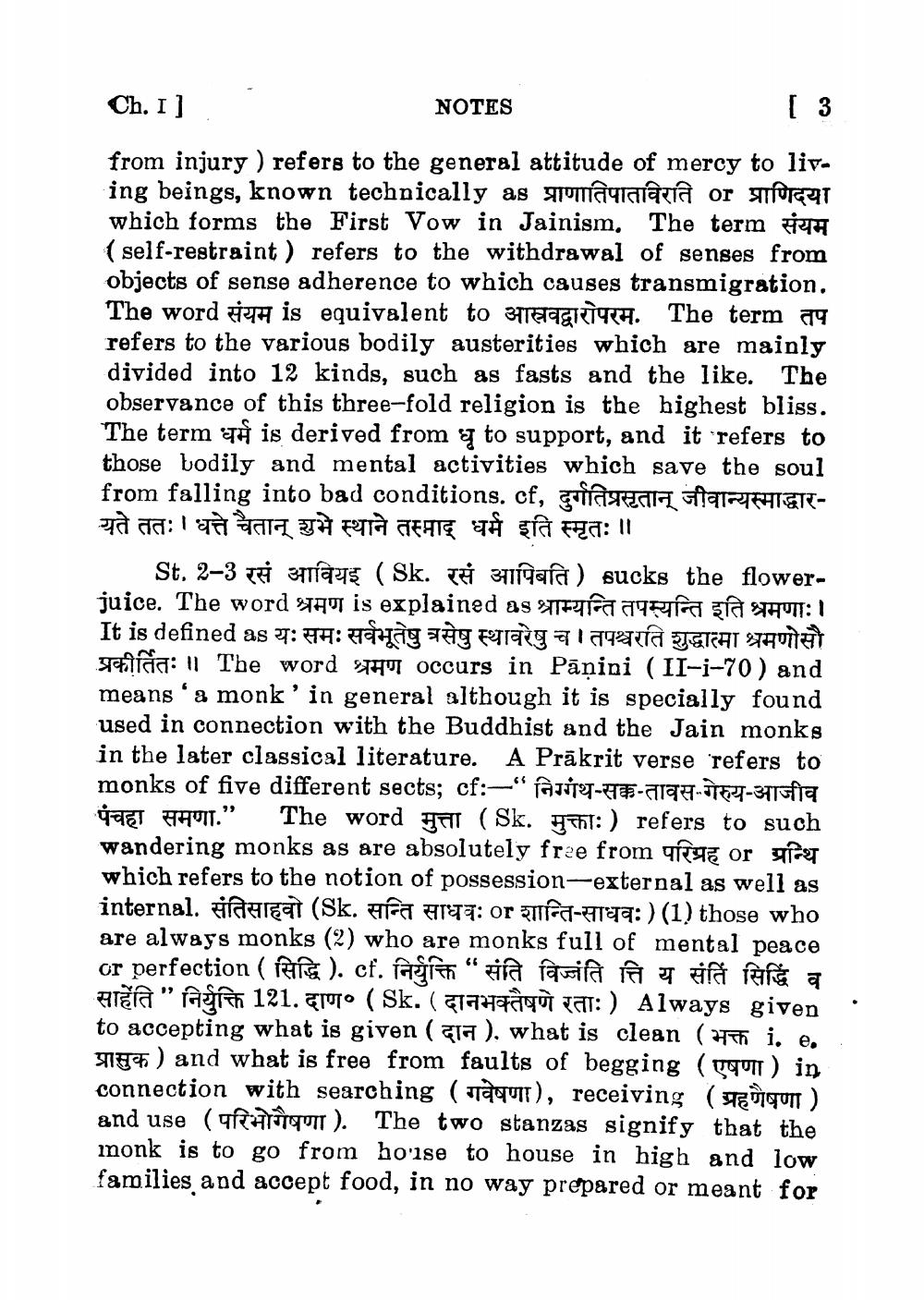________________
Ch. I ]
[ 3
from injury) refers to the general attitude of mercy to living beings, known technically as प्राणातिपातविरति or प्राणिदया which forms the First Vow in Jainism. The term (self-restraint) refers to the withdrawal of senses from objects of sense adherence to which causes transmigration. The word संयम is equivalent to आस्रवद्वारोपरम. The term तप refers to the various bodily austerities which are mainly divided into 12 kinds, such as fasts and the like. The observance of this three-fold religion is the highest bliss. The term is derived from to support, and it refers to those bodily and mental activities which save the soul from falling into bad conditions. cf, दुर्गतिप्रसृतान् जीवान्यस्माद्धारयते ततः। धत्ते चैतान् शुभे स्थाने तस्माद् धर्म इति स्मृतः ॥
NOTES
""
St. 2 - 3 रसं आवियइ ( Sk. रसं आपिबति ) sucks the flowerjuice. The word श्रमण is explained as श्राम्यन्ति तपस्यन्ति इति श्रमणाः । It is defined as यः समः सर्वभूतेषु त्रसेषु स्थावरेषु च । तपश्चरति शुद्धात्मा श्रमणोसौ The word H occurs in Panini (II-i-70) and means a monk' in general although it is specially found used in connection with the Buddhist and the Jain monks in the later classical literature. A Prakrit verse refers to monks of five different sects; cf : - " निग्गंथ - सक्क- तावस- गेरुय आजीव पंचहा समणा.' The word मुत्ता ( Sk. मुक्ता: ) refers to such wandering monks as are absolutely free from परिग्रह or ग्रन्थि which refers to the notion of possession-external as well as internal संतिसाहवो (Sk. सन्ति साधवः or शान्ति साधवः ) (1) those who are always monks (2) who are monks full of mental peace or perfection ( सिद्धि ). cf निर्युक्ति “ संति विज्नंति त्ति य संतिं सिद्धिं व सार्हेति ” निर्युक्ति 121. दाण० ( Sk. ( दानभक्तैषणे रताः ) Always given to accepting what is given (a). what is clean ( i. e. प्रासुक) and what is free from faults of begging ( एषणा ) in connection with searching (aq), receiving (q) and use (aq). The two stanzas signify that the monk is to go from house to house in high and low families and accept food, in no way prepared or meant for




